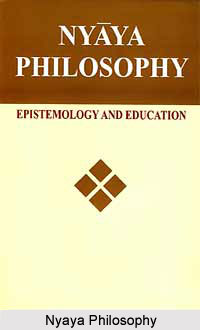 Concept of Tarka in Nyaya Philosophy is well defined as the object of philosophical investigation. Further, in nyaya tradition, Tarka is considered as a technical term. Interestingly, different texts of Buddhist philosophy display a negative opinion of activities using tarka. On the contrary, some later treatises that are dealing with logical-epistemic problems especially the Naiyayika works recognise the methodological peculiarity of Nyaya traditions with tarka. Thus, philosophers believe that such an unsure attitude toward tarka can be easily understood in a logical way if its essential features can be grasped. Beginning from Nyaya Sutras as well as the explanations given in Nyaya Bhasya, three characteristic features of tarka has been sorted out in early Nyaya tradition. These three characteristic features of Nyaya Sutra focus on the principal feature of tarka that is reflective analysis of a subject or the on the object of investigation without calling for further factual information.
Concept of Tarka in Nyaya Philosophy is well defined as the object of philosophical investigation. Further, in nyaya tradition, Tarka is considered as a technical term. Interestingly, different texts of Buddhist philosophy display a negative opinion of activities using tarka. On the contrary, some later treatises that are dealing with logical-epistemic problems especially the Naiyayika works recognise the methodological peculiarity of Nyaya traditions with tarka. Thus, philosophers believe that such an unsure attitude toward tarka can be easily understood in a logical way if its essential features can be grasped. Beginning from Nyaya Sutras as well as the explanations given in Nyaya Bhasya, three characteristic features of tarka has been sorted out in early Nyaya tradition. These three characteristic features of Nyaya Sutra focus on the principal feature of tarka that is reflective analysis of a subject or the on the object of investigation without calling for further factual information.
Suppositional reasoning or tarka is what gives knowledge of the universal generalisations grounding extrapolations. It has been mentioned in Nyaya philosophy that knowledge is achieved through the elimination of doubt, and what eliminates doubt is the existence of a compelling reason. But doubt is more infectious than it first appears, for one might doubt whether one`s reason really is compelling, doubt whether the reason for thinking that it is compelling is itself compelling, and so on forever along a familiar evidential regress. Doubts cascade, and truly compelling reasons are scarce. For analysing the role of reason in the management of doubt, later Nyaya epistemologists developed a theory of what they call `suppositional reasoning` or the concept of tarka. That the term tarka is used in this context is significant in itself. For in the basic and early literature, tarka is virtually synonymous with reasoned thinking in general. In its popular use, tarka or suppositional knowledge is the nearest one gets to a Sanskrit synonym for rationality.
Further, it is mentioned in Nyaya philosophy that suppositional reasoning or `tarka`, is a device for appropriating a presumptive right, the right to presume that one`s own position is correct even without conclusive evidence in its support. Following a doubt even if there is a desire to know the truth, the doubt still remains after the desire to know has come about. This is the situation intended for the application of suppositional reasoning. Thus, doubt is suppressed by the application of suppositional reasoning to its subject matter. A method of knowing is engaged to decide a question, but when there is a doubt involving its opposite, the method of knowing fails to engage. A radical sceptical hypothesis is a proposition inconsistent with ordinary belief, but consistent with all available evidence for it. Suppositional reasoning supports one`s means of acquiring evidence, but is not itself a source of evidence. Its role is pragmatic and situational; to change the standard of evidence required for proof in the specific context.



















